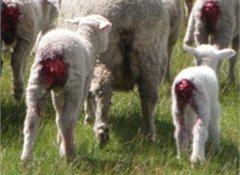Home : Research Results : 80% want imported animal products to meet NZ welfare standards
Research Results
80% want imported animal products to meet NZ welfare standards
2 Oct 24

Poll findings are showing confusion among New Zealanders about whether imported animal products sold must meet the same welfare standards as local products.
A new poll, with video, released today (2 October) on World Day for Farmed Animals, is highlighting a concerning lack of awareness about animal products imported into New Zealand with only 1 in 5 people aware that imports do not have to meet New Zealand’s own animal welfare standards.
The findings indicate that the vast majority of the population is unaware of the current regulations, raising urgent questions about animal welfare and consumer protection, says Animal Policy International.
Key results from the poll, carried out by Horizon Research on behalf of Animal Policy International include:
-
Nearly 80% of people (4 in 5) are unaware of cruel products. Respondents either believed incorrectly that imported animal products must meet the same welfare standards as locally produced items (31%), or were unsure about the requirements (48%). Only 21% correctly answered that imported animal products do not have to meet local welfare standards.
-
Over 80% agree that imported products from outside New Zealand should respect the same animal welfare standards as those applied in New Zealand. Only 5% disagree.
A report released by the NGO in March analysed New Zealand's main animal product imports such as eggs and egg products from battery caged hens, pork from production systems that keep pregnant pigs in sow stalls, and wool from sheep farms that perform live lamb cutting (mulesing) - all of which have been banned in New Zealand due to animal welfare concerns. New Zealand imports many animal products illegal to produce locally, from regions such as the US, Australia, China, Vietnam and Thailand.
The poll also revealed strong public concern about the implications of the lack of regulations:
-
Almost three quarters (73%) are concerned about the impact on the welfare of animals farmed overseas for New Zealand consumption
-
Nearly two thirds (63%) are concerned about the impact on New Zealand's high reputation for animal welfare
-
Over two thirds (68%) are concerned about the impact on Kiwi farmers
“Cruel imports are the cause of suffering of millions of animals overseas and harm Kiwi farmers who are forced to compete against lower welfare products,” said Animal Policy International Co-Executive Director Rainer Kravets.
“Yet our new poll shows that most people aren’t even aware of this. Allowing cruel imports creates a race to the bottom that sells out New Zealand values. Just as we regulate imports to safeguard our biosecurity, we should also do so for animal welfare, protecting the values of New Zealanders and upholding our reputation. As we commemorate World Day for Farmed Animals, urgent action is needed to stop cruel imports.”
The Stop Cruel Imports campaign is supported by professional tennis player and olympic medalist Marcus Daniell who provided the voice over for the video. Marcus grew up on a sheep and beef farm in Wairarapa. “The importing of sub-standard meat products undercuts the efforts of NZ farmers and allows the mistreatment of animals to cross our borders. This is terrible for the animals and existential for our farmers. If we all speak out against this we will help countless animals live better lives and also help our New Zealand farmers make an honest living from their hard work.”
The organisation is encouraging the public to sign the petition urging the Government to enact legislation ensuring all animal products sold in New Zealand meet the same animal welfare standards.
FOOTNOTES
-
Animal Policy International is a European-New Zealand charity working on trade and animal welfare. The charity is calling for animal welfare legislation (rearing, transport, slaughter) to also be applied to imported products via unilateral legislation.
-
Most countries exporting to New Zealand have poor or lower animal welfare standards in comparison. For example:
-
Sow stalls: Over 90% of pork imported into New Zealand comes from countries like Canada, United States and some European countries that allow the use of sow stalls, in which mother pigs are confined to narrow cages where they cannot perform basic behaviours, such as turn around or build nests. New Zealand banned sow stalls in 2016 after a public outcry.
-
Battery cages: 86% of liquid egg imports in 2022 came from China and Australia where egg-laying hens can be kept in battery cages where there is less space than an A4 sheet of paper per bird leaving them unable to perform natural behaviour such as dust bathing and nesting. New Zealand’s ban on battery cages came into force in 2023.
-
Live lamb cutting (mulesing): All of the wool imported to New Zealand in 2022 came from Australia where live lamb cutting is a widely used practice. It entails removing parts of the skin from live sheep without anaesthetic, causing severe immediate and long-term pain to lambs. In New Zealand performing mulesing can result in a criminal conviction.
-
Fish slaughter: 73% of fish imported into New Zealand comes from Thailand, China, Australia, and Vietnam - all countries with no welfare standards around slaughter. New Zealand has a Code of Welfare (Commercial Slaughter) 2018 that concerns aquatic animals at the time of slaughter.
-
The poll results are from a survey conducted between 11 to 16 September 2024. The total sample size was 1,051 adults, 18 years of age and over. The maximum margin of error is ±3%. The data was weighted on age, education, ethnicity, gender, Party Vote 2023 and region, to be representative of the New Zealand adult population. Full results can be viewed here.
HorizonPoll Online Survey system
and website developed by BEWEB
Copyright © 2010. HorizonPoll incorporating ShapeNZ - Listening to New Zealand


